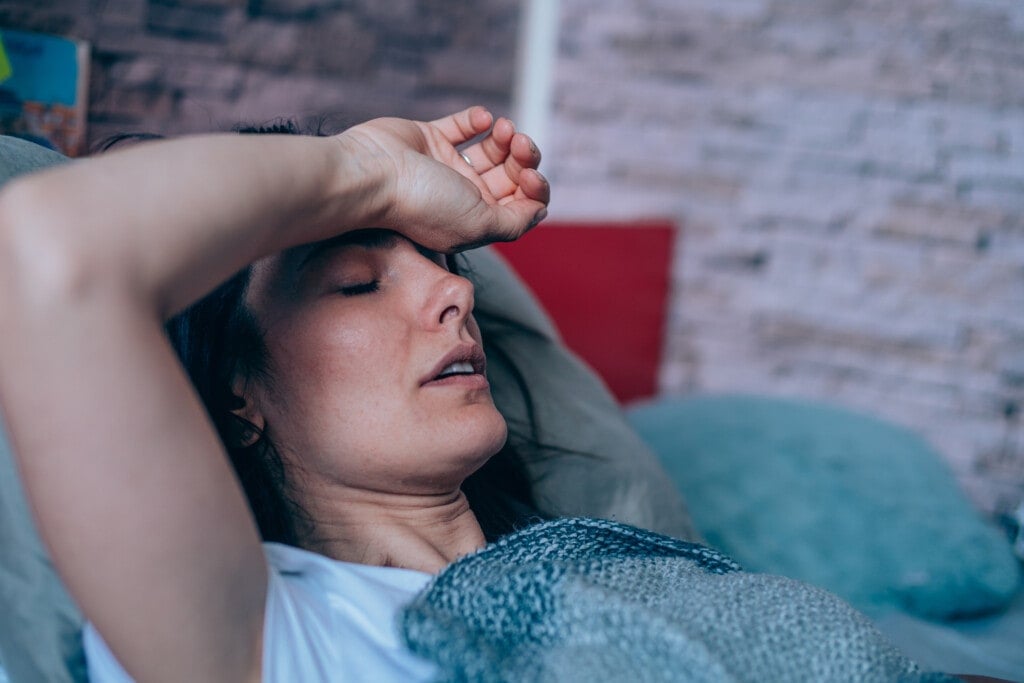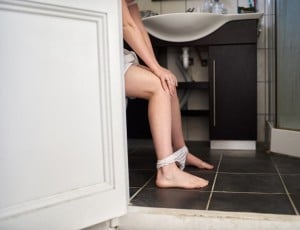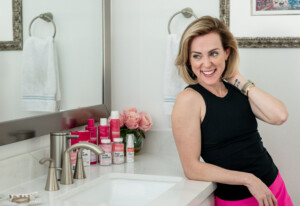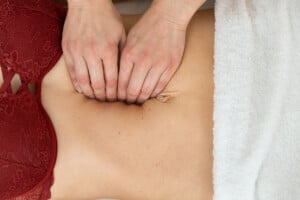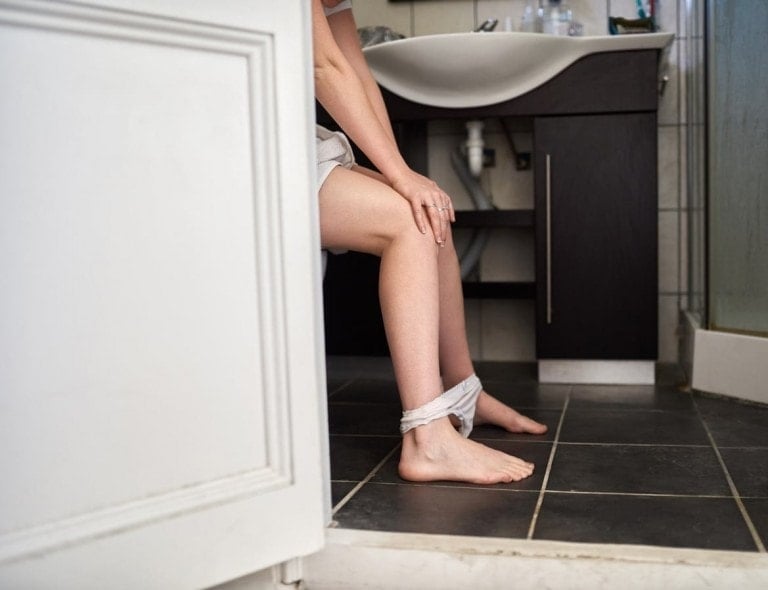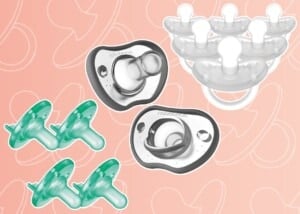So many surprises come with postpartum life — one of them being the infamous postpartum night sweats. Just when you think you’ve waved goodbye to the discomforts of pregnancy, you find yourself waking up in a pool of sweat after your baby is born. Many changes occur in our bodies after we give birth due to fluctuations in hormone levels, lifestyle changes, physical recovery, emotional responses, and more. While postpartum night sweats are considered “normal,” they certainly aren’t fun!5 This article will explore what causes them, what they might look like, and how to cope.
What You Need To Know About Postpartum Night Sweats
Whether you realize it or not, your body increases blood volume by 45% during pregnancy.1 With this comes significant fluid shifts that occur naturally during pregnancy and again after your baby is born. These fluid shifts may cause swelling, excessive urination, and postpartum night sweats — not to mention the shifting in hormones such as progesterone and estrogen, which rise during pregnancy and decrease after delivery.5 If you’re a breastfeeding mama, you can expect estrogen levels to be low and prolactin levels to be high, which drives down estrogen levels even more.5 With that comes the major sweats. Here’s everything you need to know about them:
What Are Night Sweats?
You may find yourself waking up due to feeling hot, or perhaps you, your clothes, sheets, and pillow, are drenched! Heat flashes and night sweats affect about 29% of mamas postpartum. These are associated with sleep disturbance, irritability, and impairments of day-to-day living.2
Funny enough, I once woke up feeling like I had bugs crawling all over me when it was actually beads of sweat! As if the nighttime feedings and middle-of-the-night diaper changes weren’t enough. Some mamas report their levels of anxiety can trigger hot flashes and postpartum night sweats as well.5,7 Of course, if you feel you’re experiencing postpartum anxiety or postpartum depression, please reach out to your healthcare providers.
How Long Will They Stick Around?
So, how long will these postpartum night sweats plague you? Typically, the sweats start shortly after birth. After a few weeks, once your hormones have tapered off and your body has rid itself of the extra fluid, you’ll find that they start to improve or maybe even disappear.5 Of course, like everything else, everyone is different. You may never even experience postpartum night sweats. Other mamas claim they experience them months after giving birth.
How Can I Manage Postpartum Night Sweats?
Managing this nuisance can help with the symptoms but probably won’t get rid of the postpartum night sweats completely. Here are some things you can do that might help:
1. Turn Down the A/C or Turn on a Fan
Keeping the body cool can help diminish the severity of postpartum night sweats. According to Sleep Foundation, about 65 degrees Fahrenheit (18.3 degrees Celsius) is the best bedroom temperature for optimal sleep, but this number varies between people. However, they also note that you can keep the thermostat anywhere from 60-68 degrees Fahrenheit (15.6-20 degrees Celsius) for comfortable sleep.3
2. Drink Lots of Water
You’re probably thinking, “I thought this was happening because my body was trying to get rid of fluids?!” Yes, it’s true. But drinking water and staying hydrated can help your body flush out what it needs while preventing dehydration.5
3. Wear Loose and Breathable Clothing To Bed
Natural fabrics like cotton and linen will help prevent body heat from being trapped, unlike fabrics such as polyester or lycra. Perhaps ditching clothing altogether will help you sleep a bit more soundly!
4. Limit Food and Beverage Triggers
Some mamas will tell you that avoiding caffeine, alcohol, and spicy foods will help keep those postpartum night sweats at bay.10,11
5. Incorporate Deep Breathing and Relaxation Techniques Into Your Daily Living
As stated above, stress and anxiety can cause worsening hot flashes and postpartum night sweats.5 Managing stress and anxiety during the postpartum period has numerous benefits — far beyond improving postpartum sweats. You can try deep breathing and other relaxation techniques to help calm your anxiety.
6. Eat a Well-Balanced Diet
Maintaining a healthy lifestyle during pregnancy and after the birth of your baby is essential, as it aids in physical recovery, and some research shows eating soy foods can help diminish postpartum night sweats.4
7. Protect Your Sheets!
Place a towel or mattress protector underneath you when you sleep so you can wash your sheets without worrying about ruining your mattress.
Should I Be Concerned About Postpartum Night Sweats?
While the postpartum night sweats are normal, there are some instances in which I would recommend reaching out to your healthcare providers. As mentioned above, if you’re experiencing postpartum anxiety or postpartum depression, please reach out. You should also contact them if you experience any of the following:5,7,8,9
- Fever (temperature greater than 100.4 degrees Fahrenheit)6
- Body aches or chills
- Excessive fatigue
- Shortness of breath
- Headache, blurry vision, and swelling of the hands, feet, or face
- Abdominal pain
- Changes in urinary or bowel patterns
Have no fear, mamas! Like the discomforts of pregnancy, the postpartum night sweats won’t last forever. And know that while you’re taking the proper steps to improve this postpartum side effect, you’re also improving other aspects of your health and well-being.

